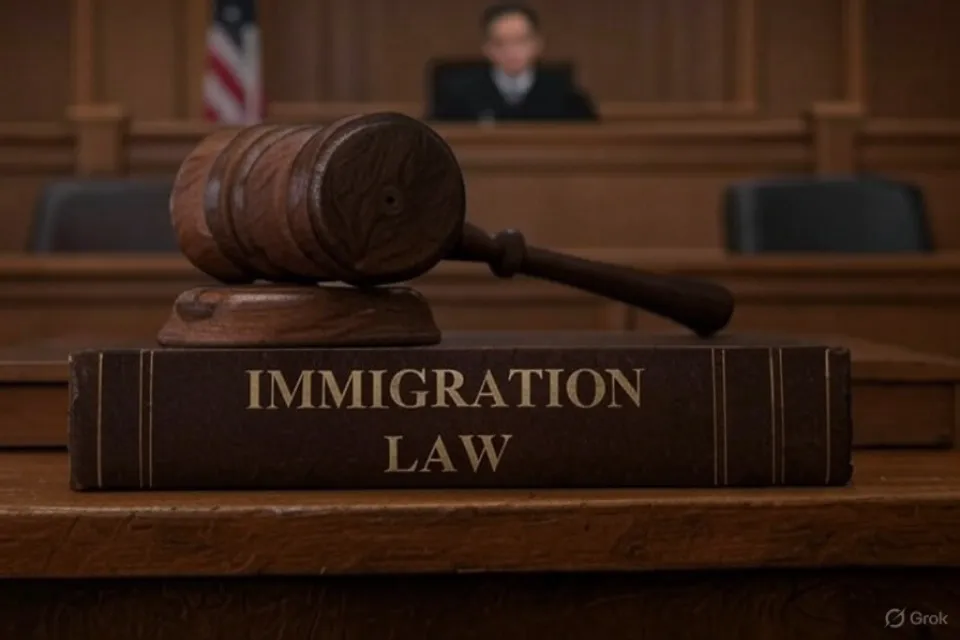
Immigration Violations and the Role of Bail Bonds in the U.S.
🧷 Common Immigration Violations and the Role of U.S. Immigration Bonds
The United States is known as a melting pot of cultures, drawing people from every corner of the world in pursuit of opportunity, safety, and a better future. As of 2022, an estimated 46.2 million immigrants were living in the United States. According to national surveys, more than three-quarters of them are in the country legally.
But what about the rest?
Every year, thousands of people enter or remain in the U.S. without proper documentation—whether by crossing the border without inspection or overstaying a visa. These actions, while often driven by desperation or lack of awareness, are considered immigration violations under U.S. law.
Understanding these violations—and the tools available to help, such as U.S. immigration bonds—can be the key to protecting your rights and defending your future.
(Source: Migration Policy Institute)
What Is an Immigration Violation?
Immigration violations occur when an individual breaks U.S. immigration law. Some of these violations are civil, while others carry criminal penalties. In either case, they can trigger serious consequences—most notably, detention by ICE (Immigration and Customs Enforcement) and removal proceedings.
Let’s take a closer look at the most common types of immigration violations and how they affect those involved.
Types of Immigration Violations
1. Unauthorized Entry
Unauthorized entry occurs when a person enters the United States without valid permission, such as a visa or border inspection. This is one of the most common violations and includes:
Crossing the U.S.-Mexico border unlawfully
Arriving by sea without authorization
Entering with fake or altered documents
Unauthorized entry is typically treated as a civil offense, but in some cases, it may lead to criminal charges, especially for repeat offenders.
Once identified, the individual may be placed in ICE custody and face removal (deportation) proceedings.
2. Visa Overstay
Many people arrive in the U.S. legally with valid tourist, student, or work visas—but then stay after the visa expires. This is known as visa overstay, and while it’s considered a civil violation, the consequences can be serious.
Overstaying a visa can result in:
Being barred from reentry for 3–10 years
Denial of future visas or immigration benefits
Placement in ICE detention
Loss of eligibility for adjustment of status
Visa overstay is a leading cause of undocumented status, especially for people who entered through legal means but failed to depart on time.
3. Employment Violations
U.S. immigration law sets strict rules about who can work legally in the country. Common employment-related violations include:
Working without proper authorization
Falsifying employment documents
Using another person’s Social Security number
Employers knowingly hiring undocumented workers
These violations can result in fines, ICE raids, detention, and criminal charges. In many cases, both the employee and the employer can face consequences.
4. Reentry After Removal
An individual who was previously deported but later reenters the U.S. without authorization is committing a federal crime.
This offense often leads to:
Immediate ICE detention
Lengthy prison terms (especially if combined with criminal history)
A permanent bar on reentering the United States
This type of case nearly always requires urgent legal support and bail bond assistance.
5. Document Fraud and Misrepresentation
Using false information or documents in any immigration process can be classified as document fraud, including:
Fake green cards or visas
False asylum applications
Misrepresentation during a visa interview
Lying about identity, nationality, or marital status
Even small misrepresentations can invalidate visa applications or lead to removal. These offenses often result in inadmissibility bars—making it extremely difficult to gain legal status in the future.
6. Criminal Activity Related to Immigration
Some serious offenses like human trafficking, drug smuggling, and immigration fraud schemes are considered both immigration and criminal violations.
Individuals charged with these crimes may face:
ICE detention without bond eligibility
Federal prosecution
Lifetime immigration bans
In such cases, navigating both criminal and immigration law simultaneously requires expert legal representation and fast access to immigration bonds when allowed.
What Happens After a Violation Is Discovered?
Once ICE becomes aware of an immigration violation, the individual may be:
Placed in removal proceedings
Detained in an ICE facility
Scheduled for a bond hearing
Assigned an immigration court case
For many, the first interaction comes suddenly—through a traffic stop, workplace raid, or arrest for an unrelated matter. ICE then places a detainer on the individual, leading to transfer to an immigration detention center.
In these situations, time is of the essence. Getting released on an immigration bond allows the individual to regain control, seek legal help, and begin preparing their defense.
The Role of Immigration Bonds
An immigration bond is a financial guarantee that a detainee will comply with all court proceedings after being released from ICE custody. These bonds are set by ICE or an immigration judge, depending on the case.
Once paid, the individual can leave detention and return home while the case proceeds.
There are two primary types of immigration bonds:
Delivery Bond
This is the most common type. It allows the individual to be released with the condition that they:
Appear at all court hearings
Comply with ICE check-ins
Follow any court-imposed conditions
Once the case is closed and the individual has complied with all terms, the bond can be refunded to the payer.
Voluntary Departure Bond
In this case, the detainee agrees to leave the U.S. voluntarily by a certain date. If they follow through and leave on time, the bond is refunded. If not, the bond is forfeited, and they may face additional penalties.
Want to understand how bond amounts are calculated? Try our bond calculator tool to estimate your costs and options.
Why Immigration Bonds Are So Important
Being detained by ICE is devastating for individuals and families. Access to legal help, emotional support, and necessary documentation becomes almost impossible. Immigration bonds offer:
A path to freedom while your case is pending
A chance to prepare legal defenses properly
The opportunity to stay connected with family
Reduced risk of negative mental and emotional effects from detention
Time to gather important documents, witnesses, or evidence
Getting released through a bond is not just about comfort—it’s about giving someone a fair shot to defend their case fully.
Final Thoughts: What To Do If You’re Detained
If you or someone you love has been arrested for an immigration violation, the steps you take next will shape your future.
Here’s what to do immediately:
Hire an experienced immigration attorney to review your case
Request a bond hearing, if not already set
Reach out to a licensed immigration bond company to begin the release process
Gather identification, family support letters, and legal documents to support your case
Follow all court and ICE instructions to the letter
Call Amistad Bail Bonds for Immediate Help
At Amistad Bail Bonds, we help individuals and families across the U.S. post immigration bonds quickly and correctly. Whether you’re facing a visa overstay, unauthorized entry, or a more complex legal issue, we’re here to help.
We offer:
24/7 bond support
Bilingual agents in English and Spanish
Affordable payment options
Personalized guidance through ICE procedures
Nationwide bond processing, not just in North Carolina
Call us today at (800) 537-0645 or schedule a free consultation. We’ll help you take the first step toward freedom and ensure you or your loved one has the opportunity to face immigration proceedings with dignity and support.
